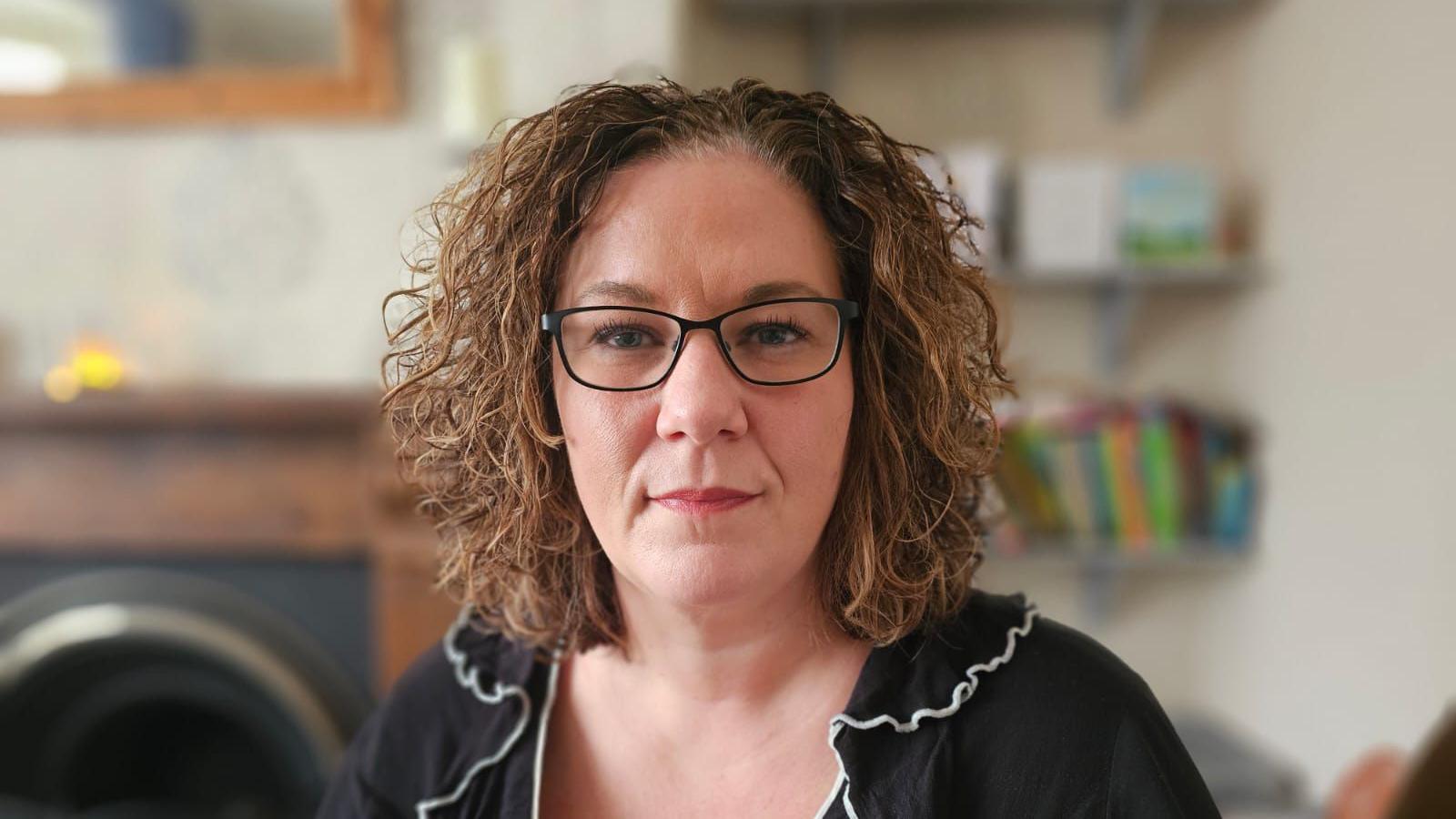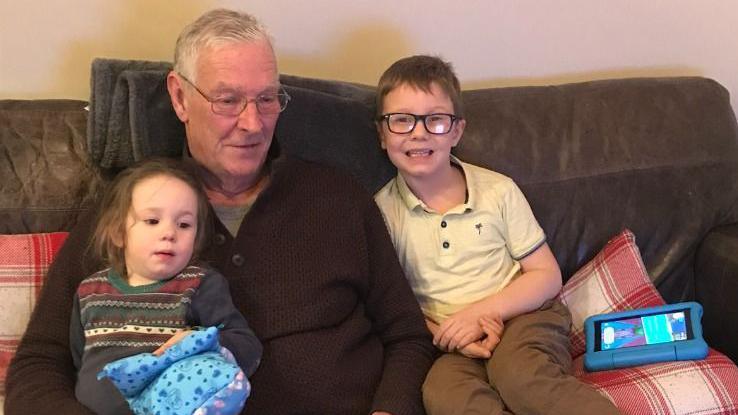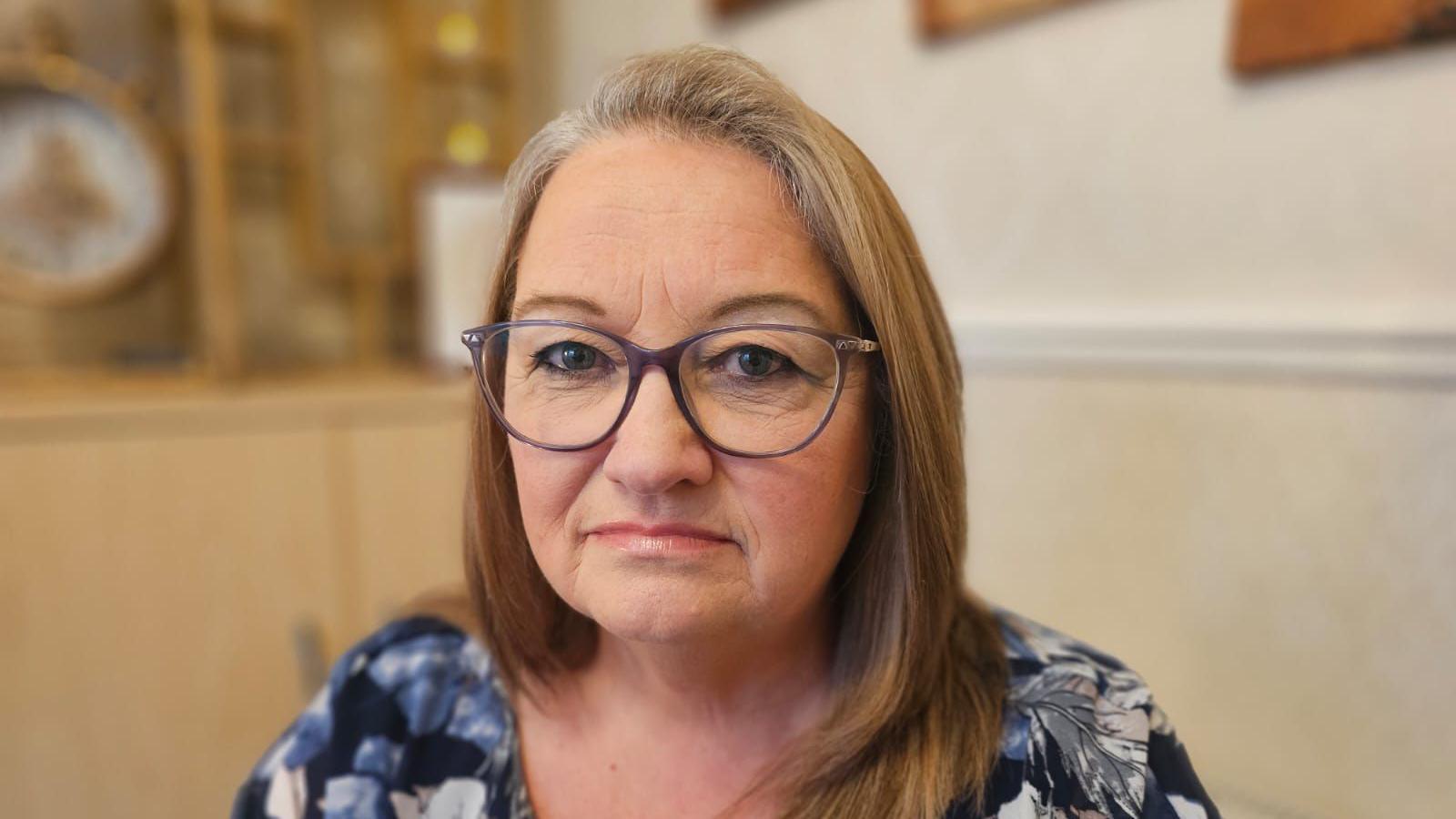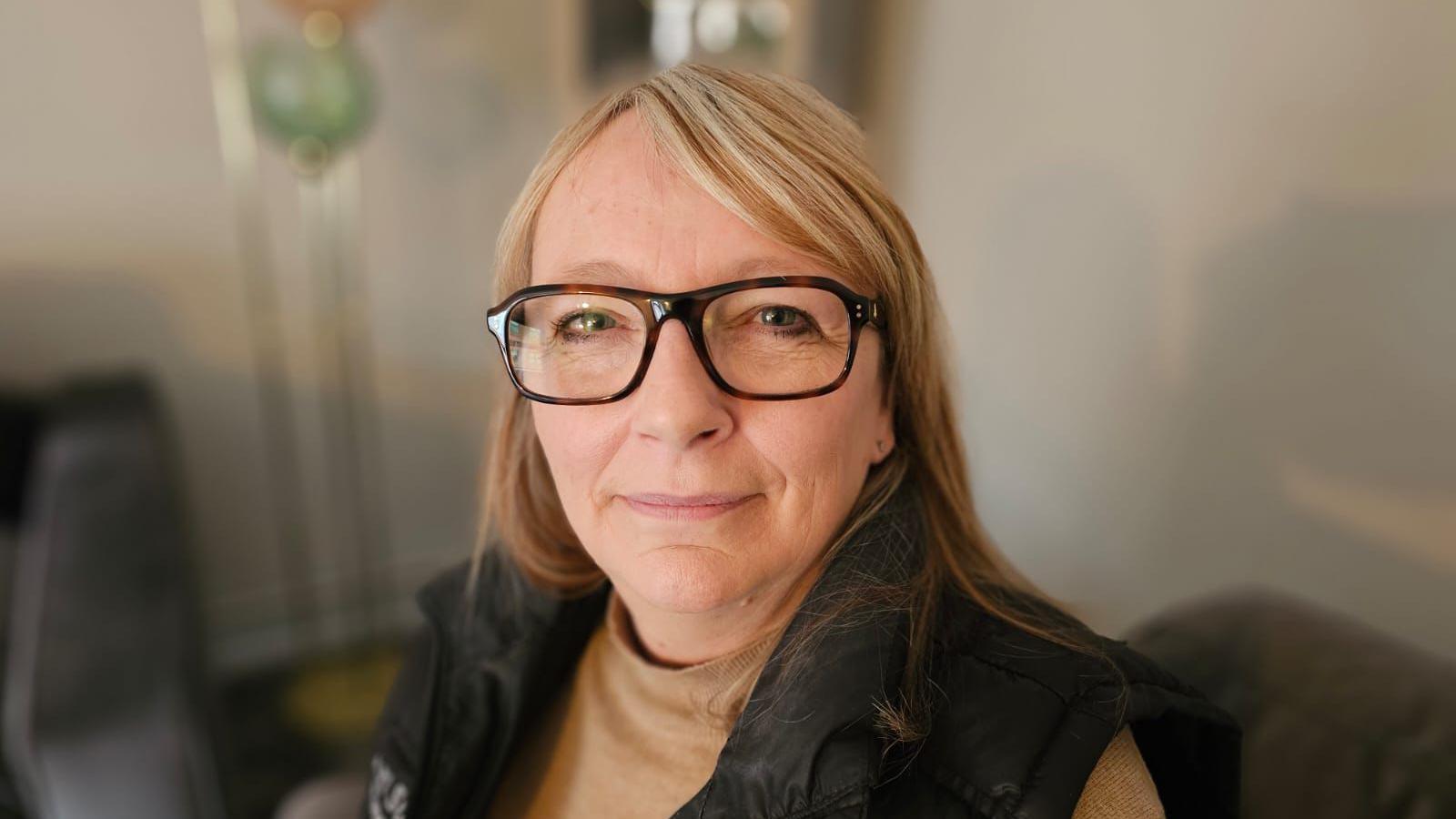'I've waited seven weeks to give my dad a funeral'

Gemma Whysall says the long wait for a death certificate has "delayed her grieving"
- Published
A woman still waiting for her father's funeral seven weeks after his death says the new certification system is "awful".
Gemma Whysall, 42, whose father Christopher Wyles died unexpectedly in his sleep on 17 December, says she was left in limbo while the cause of his death was determined.
The death certification reforms for England and Wales came into effect, external on 9 September, and mean all deaths are now reviewed independently, either by a medical examiner or a coroner, before a certificate is issued.
Gemma said: "By the time we are able to have a funeral, it will be seven weeks since he passed, and the process, for a family who's grieving, has been terrible."
Between the day of her dad's death and 9 January, Gemma says she had no communication from any authorities.
"In the absence of any real communication about the new process, we've just been sat waiting," Gemma added.
"I had no update on when or how I could arrange my dad's funeral, what the process would be, and nobody seemed to know what was happening."
Under the new system, which was brought about partly in response to Harold Shipman's murders, external, GPs no longer issue death certificates independently.
After a GP completes a medical certificate of cause of death (MCCD), an independent medical examiner reviews it.
Once approved, the certificate is sent to the registrar, who officially records the death.
The process means GPs have to give access to a patient's records in order for the medical examiner to decide if they agree with the MCCD.
In Mr Wyles's case, he was initially reviewed by a medical examiner who then passed his case on to a coroner, because the 71-year-old died unexpectedly.
The coroner then determined the death was caused by an undiagnosed heart condition.
Gemma received a certified cause of death on 17 January - one month later - with the death then officially registered five days later.
The funeral is due to take place on Thursday.

Gemma's father Christopher, who died in his sleep, had an undiagnosed heart condition
Gemma said the delay in receiving a death certificate meant she was unable to visit her father in the chapel of rest - a room in which families can see their loved one at a funeral home.
Funeral directors are unable to embalm or treat the deceased in their care until a death is registered.
"I would have liked to see him, I would have liked the children to see him, but we can't now, because they [the funeral director] said he will have changed so much, he won't be recognisable," she said.
"The children are heartbroken, they were really, really close to their grandad and so they feel like they haven't said goodbye.
"They have written a goodbye letter that they are going to read at the funeral."
Have you been affected by the issues raised in this story? Get in touch.
'Very new'
The NHS is responsible for reviewing deaths in and out of hospitals. In line with the new regulations, this must be done for all deaths excluding those referred to the coroner.
Since the reforms, this process must be done before a death certificate can be issued, and the NHS aims to do that within three days, but this can vary depending on the complexity of the case.
A spokesperson for the NHS Derby and Derbyshire Integrated Care Board (ICB) said: "We would always wish to support families during what is clearly a distressing and difficult time and we strive to ensure the medical certificate of cause of death can be issued as quickly as possible.
"However, it can take longer when cases are complicated, or we have a high volume of deaths.
"The change in legislation is still very new, and we are continuing to improve our process by appointing more medical examiners and ensuring seamless handover of information to ensure our part of the death certification process happens in a timely manner."

Darlene Kinton, director at Kinton and Daughter Family Funeral Directors, says families are not getting to spend time with their loved ones
Funeral director Darlene Kinton, who is arranging the funeral for Mr Wyles, said: "It's not a nice thing to have to say to someone, that their loved one's deteriorated.
"We can't stop that process happening and because that delay is there, we are having to have those difficult conversations."
The company director at Kinton and Daughter Family Funeral Directors in Long Eaton, Derbyshire, said the new system has had a "massive impact" on funerals.
"It can be three or four weeks before we've got the death registered," she said.
"That means that we can't start our work, we can't start looking after them, preparing them for families to come and see them.
"So then the knock-on effect is that families are not getting to spend time with their loved ones at a time when they need it."
'Clear expectations'
Guidance on the new legislation, set by the Department of Health and Social Care (DHSC), says, external: "Medical examiners will offer a conversation about the cause of death with the deceased's representative, which provides an opportunity for them to raise concerns."
However, Gemma said she was not contacted and found herself "chasing answers".
"The thing that was missing for me was that communication, clear expectations on timescales and processes would help families.
"I don't think we need to leave grieving families this long not knowing why their loved one died.
"The delays have definitely compounded the grieving process and made it harder for me," she said.
A DHSC spokesperson added: "Changes to the death certification process support vital improvements to patient safety and aim to provide comfort and clarity to the bereaved in the difficult moments following a death.
"We expect deaths to be processed as quickly and efficiently as possible and are closely monitoring the implementation of these reforms."
Get in touch
Tell us which stories we should cover in Derby
Follow BBC Derby on Facebook, external, on X, external, or on Instagram, external. Send your story ideas to eastmidsnews@bbc.co.uk, external or via WhatsApp, external on 0808 100 2210.
Related topics
- Published21 January
